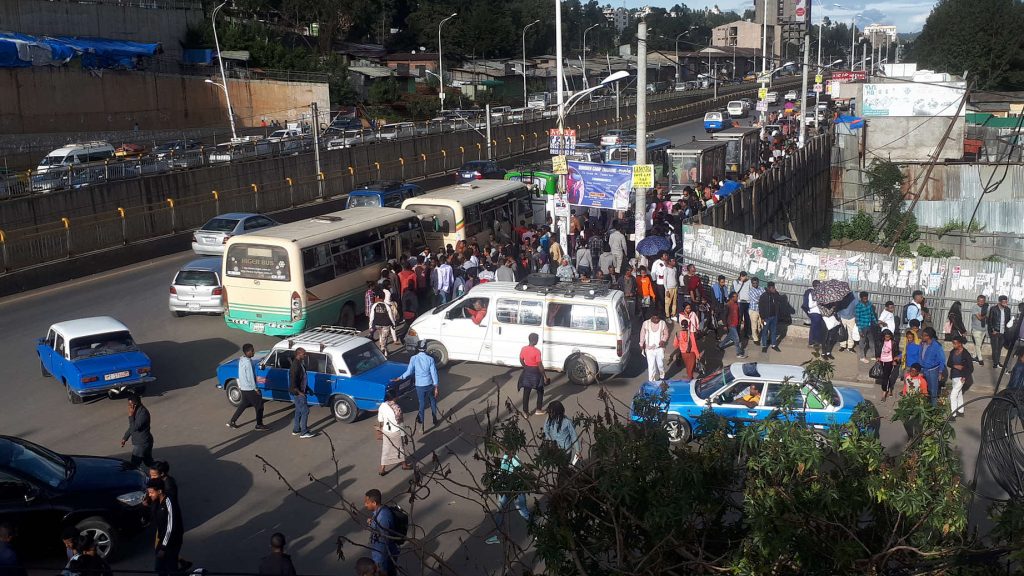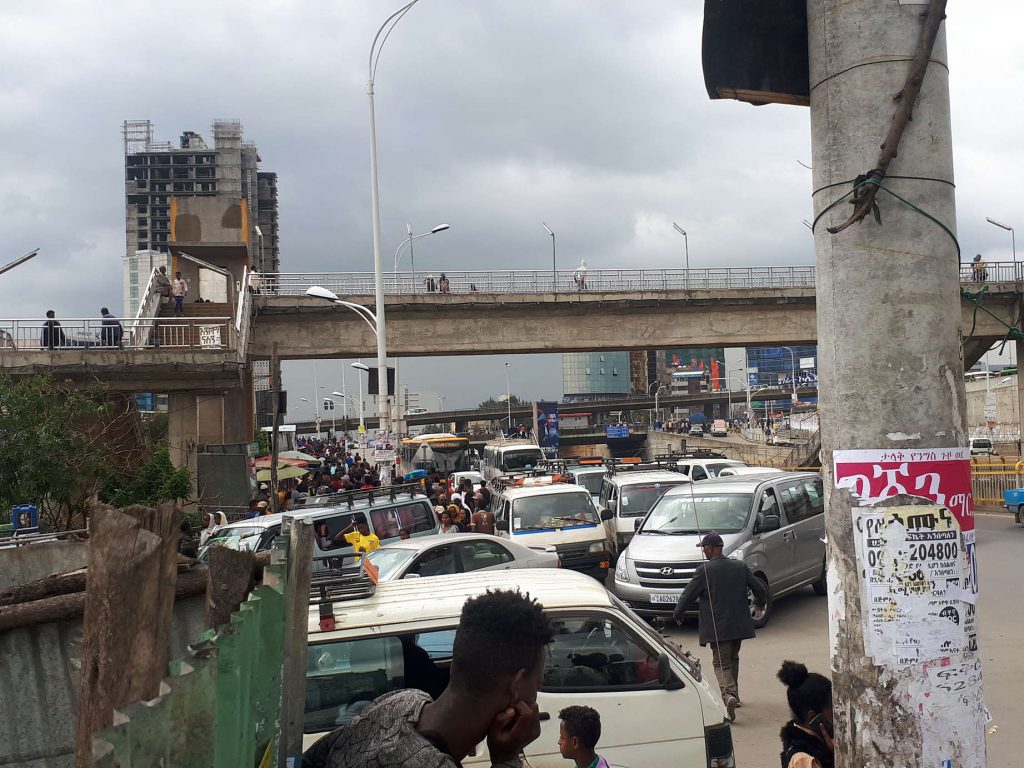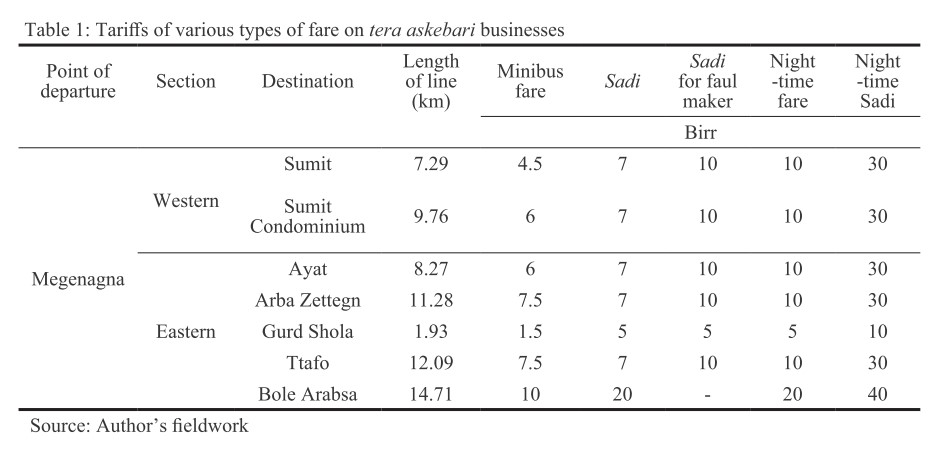クルアーン学校を「近代化」するとはどういうことか/カメルーン・ヤウンデの事例
対象とする問題の概要 カメルーンを含む西アフリカのムスリムたちは、こどもたちにクルアーンの読み方や初歩的なイスラームの知識を教える、クルアーン学校(coranic schools)と呼ばれる組織をもっている。クルアーン学校は、ムスリムたち…

Tera askebari are terminal conductors and minibus queue keepers in Addis Ababa, Ethiopia. A high demand for curbing problems on paratransit business had encouraged street youth to gather themselves together to create an informal type of work as, tera askebari. Although their role is significant in minibus business, few studies have been conducted. Little research has mentioned tera askebari (Di Nunzio, 2014; ECCSA, 2009); moreover, the studies did not deeply scrutinise such workers’ livelihood, background, and their role in the transportation network.
In this regard, through observing their activities, I attempted to determine their management and social roles in the paratransit business, specifically in Megenagna terminal in Addis Ababa.

Based on my fieldwork, I determined that the tera askebari perform an important role in the modern public transportation sector, especially in private transportations lines such as with minibuses and mid-sized buses. Tera askebari not only work as queue keepers in the terminal but are also involved in many affairs happening in the terminal such as arbitrating, negotiating, and catching thieves. Second, I have found out the basic information of the group, such as a timetable and group composition. Third, the social relationship within minibus-based workers (driver, minibus attendant, tera askebari, and lamera [1]) has been determined as important in conducting the business. Lastly, I found out that the tera askebari use their own rules and autonomous systems to effectively manage the vehicles (Table. 1).
[1] Lamera refers to people who tout passengers in specific line on behalf of minibus attendant. They mostly serve the service for drivers who does not hire minibus attendant.

This table shows the tariffs for different types of fare that the tera askebari and minibus attendants collect depending on the situation. It is found out that Minibus fare and the Sadi (tera askebari’s collecting fee by each minibus) changes according to the circumstances. For example, tera askebari collected higher fees from the minibus operators who commit fouls as well as at night-time.
For further research, I am planning to visit Ethiopia from the end of May to October 2020 for around 5 months. In the next fieldwork, I will continue to research the same theme; however, I will focus more on the social relationships between tera askebari and outside actors such as minibus operators, civil servants, police and street vendors.
Copyright © 附属次世代型アジア・アフリカ教育研究センター All Rights Reserved.